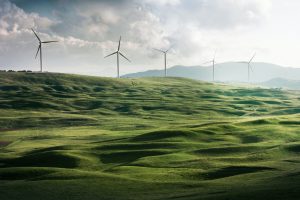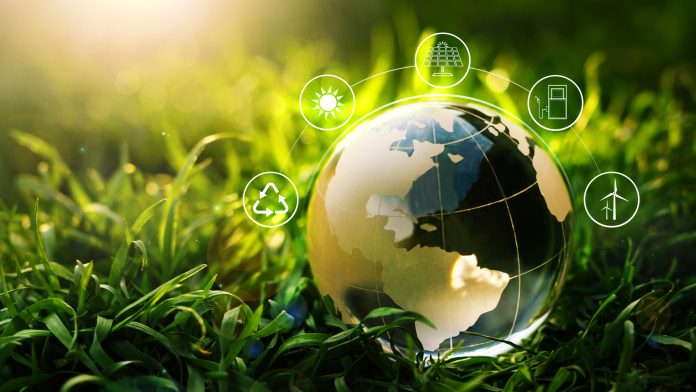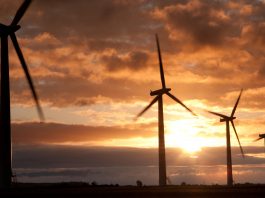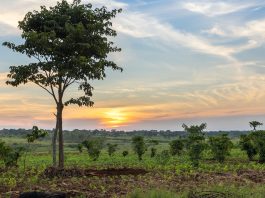The European Cooperation in Science and Technology (COST) is developing inactivates to back the European Green Deal to create a more sustainable Europe by 2030.
The European Union intends to create a sustainable Europe by 2030 through its European Green Deal: Europe’s new agenda for sustainable growth. This transition to a low-carbon, climate-neutral, resource-efficient, and biodiverse economy should create benefits for all.
The COST initiative to help achieve a sustainable Europe
However, in order to achieve the Green Deal objectives and support the United Nations 2030 Agenda with its 17 Sustainable Development Goals, it requires a radical transformation of many aspects of society.
To help achieve this goal of a sustainable Europe, The European Cooperation in Science and Technology (COST) are developing and funding different initiatives that are concentrating on different key sectors in our society that can be made more sustainable. For instance, this includes biodiversity, power, and production sectors.
COST is a funding organisation for the creation of research networks, called Cost Actions. These networks allow scientists across Europe to collaborate and therefore create advancements in R&D and innovation. Since 1971, COST has received EU funding under the various research and innovation framework programmes, such as Horizon 2020 and Horizon Europe.
COST Action Conserveplants: conserving our ecosystem
Plants are an essential part of our ecosystem, but we often know surprisingly little about the rarest and most threatened species, and even less about their conservation status. Climate change and rural development can induce rapid change in natural habitats that cause an accelerated decline in species and biodiversity. COST Action Conserveplants (CA18201 – an integrated approach to conservation of threatened plants for the 21st Century) is working to improve plant conservation in Europe by establishing a network of scientists and other stakeholders – including plant taxonomists, ecologists, conservationists, biologists and social scientists.
“The network is taking a broad view on conservation with a focus on herbaceous flowering plants in Europe,” explained Action Chair, Dr Živa Fišer from the University of Primorska in Slovenia. “Our aim is to increase our knowledge on threatened plants from many different aspects such as their pollinators, how their seeds germinate and their specific biology. The biology of some common species of plant is still not well understood so we need to identify the critical factors, which push certain plants to the brink of extinction.
“The Action is working to harmonise conservation protocols across Europe and to update the methodologies that different authorities use to define their ‘red lists’ – the species most at danger. This is an area of great divergence across Europe,” added Dr Fišer.
COST Action WECANET: accelerating the transition to zero-carbon energy
The transition to zero-carbon energy sources is an essential element to achieve a sustainable Europe. Wind and solar power technology have made major advances and are widely implemented across Europe. However, the potential of other energy resources such as wave energy is yet to be exploited. COST Action WECANet (CA17105 – A pan-European Network for Marine Renewable Energy) aims to promote the large-scale deployment of Wave Energy Converters (WECs).

“For the large-scale deployment of marine renewable energy technologies, an interdisciplinary approach is necessary,” explained Dr Vicky Stratigaki of Ghent University in Belgium, who is Chair of the Action. “The Action pools together diverse sources of expertise cross-cutting the environmental, social, and economic dimensions of marine energy projects.
“A major issue is to increase confidence of potential investors by reducing (non-)technological risks and related uncertainties. Significant bottlenecks need to be addressed such as installation practices and procedures. The development of arrays is a key factor for achieving an optimal installation size that is attractive to the energy sector,” Dr Stratigaki added.
COST Action EuroWeb: green production sectors
Humans have been making, manipulating, and discarding textiles for millennia, which is a challenge that needs to be battled in order to achieve a more sustainable Europe. The essential question that The COST Action EuroWeb (CA19131 – Europe Through Textiles: Network for an integrated and interdisciplinary Humanities) has been asking to combat this issue is – What can we learn from past practice to inform a future sustainable textiles industry?
The Action brings together scholars from across the human sciences including fashion, art, and design to share their expertise across time in sustainable textile practices. Dr Agata Ulanowska from Warsaw University is chairing the Action. “Textiles act like a prism to explore and understand economic, social, and cultural competences of societies in the past. Innovation in textile production has been central to many industrial revolutions that have profoundly changed society,” Dr Ulanowska explained.
The Action follows multiple aspects such as the use and reuse of textiles in various contexts, raw material use, historical technological and organisational innovations, and the symbolic relevance of textiles. “Past textile production used a range of fibres. Such as nettles and tree bark using methods that may not have harmed the tree. These strategies we need to consider now.”
COST Action RNYN: advocating for sustainable practices
To achieve a more sustainable Europe by 2030, people must be put at the forefront to share and collaborate with sustainable practice ideas, and share these with the younger generations. The road to sustainable societies must be inclusive: leaving no one behind. COST’s youth network –COST Action RNYN (CA18213 – Rural NEET Youth Network: Modelling the risks underlying rural NEETs social exclusion) is looking at the factors that affect young, rural NEETs (Not in Employment, Education or Training) and how their inclusion can contribute to sustainable development in Europe’s rural regions.
Mobility is one issue and in 2021 Action members contributed to a special edition of Sustainability ‘Lessons on Building More Sustainable Rural Societies: Youth and Mobility’ that analysed how different interventions help to increase NEETs inclusion and therefore the sustainability of rural communities. Sustainable farming is a key element of the Green Deal for a sustainable Europe.
“Our contribution is to help turn policy into practise; to combine societal development with the Green Deal,” concluded Dr Simões. “For this reason, the Action created a new Working Group on the issue of Rural NEETs and sustainability in October 2021.”









